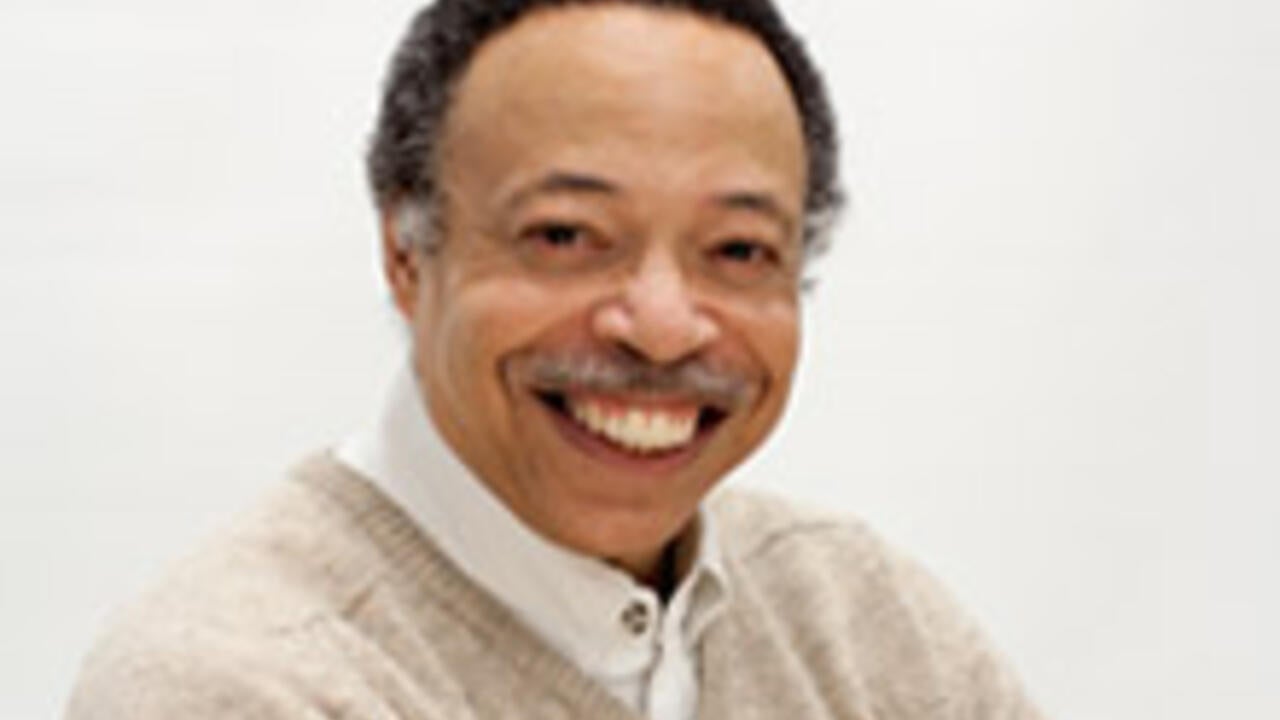
Waterloo alumnus is new Parliamentary Poet Laureate
George Elliott Clarke is acclaimed for his poetry, playwriting and scholarly work on African-Canadian literature.

George Elliott Clarke is acclaimed for his poetry, playwriting and scholarly work on African-Canadian literature.
By Wendy Philpott Faculty of ArtsWaterloo alumnus and nationally celebrated writer George Elliott Clarke adds Parliamentary Poet Laureate to his long and illustrious post-graduation track record. Announced recently, his two-year appointment with Canada’s Parliament is dedicated to the promotion of writing and reading poetry in English and French for all Canadians.

"The appointment is a personal holiday gift, but it is a transcendent, national recognition of the vitality of our official languages and doubly powerful poetries, informed by two great literary traditions,” said Clarke in the release announcing his new role.
George Elliott Clarke, photo credit: Carmelita Linta
Born in Nova Scotia in 1960, Clarke earned the first of his degrees from the University of Waterloo (BA ’84 English) and received one of his eight honorary doctorates from this University in 2006. He has maintained ties with the University in a number ways including sitting on the Advisory Council of the Department of English Language and Literature, and as a research collaborator.
Acclaimed for his poetry, fiction and playwriting, he has also won laurels for his work as an anthologist and scholar of African-Canadian literature. He is the inaugural E.J. Pratt Professor of Canadian Literature at the University of Toronto, a position established specifically for a poet-professor.
Clarke, an Officer of the Order of Canada, is currently working with James Walker, a professor in Waterloo’s history department, on a book about the late Rocky Jones, a Nova Scotia black civil rights activist, who was a personal friend of both Clarke and Walker.
“I'm humbled and honoured, inspired and eager, to follow previous Parliamentary Poets Laureate in valuing in verse our super-natural nation's exemplary experiments in democratized humanism," Clarke said in a news release.
Established in 2001, the Parliamentary Poet Laureate performs a range of duties, including writing poetry for use in Parliament on state occasions, sponsor poetry readings, and advise the Parliamentary Librarian on the Library’s cultural collection.

Read more
Meet five exceptional Waterloo graduate students crossing the convocation stage as Class of 2025 valedictorians

Read more
Meet the 14 exceptional students representing Waterloo’s newest grads

Read more
Environment and Arts student, Eloise Fan, reflects on how studying her twin passions led not only to a BES, but also to academic distinction
The University of Waterloo acknowledges that much of our work takes place on the traditional territory of the Neutral, Anishinaabeg, and Haudenosaunee peoples. Our main campus is situated on the Haldimand Tract, the land granted to the Six Nations that includes six miles on each side of the Grand River. Our active work toward reconciliation takes place across our campuses through research, learning, teaching, and community building, and is co-ordinated within the Office of Indigenous Relations.